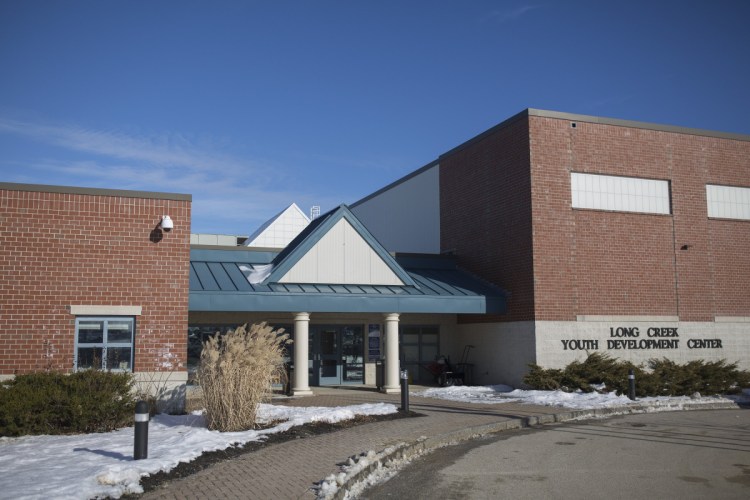The Maine Department of Corrections will convene a working group to reconsider the state’s juvenile justice system and phasing out incarcerating children at Long Creek Youth Development Center, the state’s only youth prison.

Corrections Commissioner Randall Liberty
The effort comes after years of pressure by advocates who want the state to modernize its approach to juvenile justice and abolish Long Creek following the 2016 suicide of a transgender teenager at the facility, the first death there in decades.
Corrections Commissioner Randall Liberty said Thursday he expects to begin assembling the Juvenile Justice Advisory Group in March, and that he has been working on the plan with Rep. Michael Brennan, D-Portland, who said he submitted legislation this week calling for the same process.
“There is interest from the Legislature and all of us to examine what the right number of juveniles to be in Long Creek and what the future of Long Creek is,” Liberty said.
If the group can deliver a road map by the end of the year for finding new placements for the roughly 25 long-term committed youth at the South Portland facility, Long Creek could be repurposed to house women, a policy change that is in the early stages of development.
Brennan said it is not necessary for his legislation to be passed into law to convene the group, but he and Liberty plan to hew closely to its guidelines. Text of the legislation was expected to be available Friday, he said.
The move comes at a time when the number of children incarcerated in Maine is the lowest it has been in decades.
In the 1990s, Brennan said, up to 250 children were in some form of confinement statewide. Today, that number is down to about 50 at any given time, with roughly half serving longer-term commitments at the order of a judge, and half who are held temporarily pending court dates.
“We want to continue in the direction the department (of corrections) has went up to this point, which is to reduce reliance on incarceration,” Brennan said in an interview Thursday. “We need to look at new programming and new providers and new services for those youth who are still at Long Creek.”
Although Long Creek is mostly empty, it remains costly to keep open.
This year, the state budgeted $16.2 million to run the 163-bed facility, but will house only a couple dozen people there. The population there fluctuates slightly, but 46 children are currently being held, Liberty said, meaning the state spends more than $300,000 per incarcerated child per year.
Liberty’s announcement follows remarks Maine’s top judge made Tuesday during her annual address to the Legislature in which she identified the yawning gap in services for children in crisis as the single greatest challenge to the juvenile justice system.
“The need for a continuum of caring and effective placement options for these youth has never been greater,” Maine Supreme Judicial Court Chief Justice Leigh Saufley said. “We all understand that if the only option for placement in Maine is Long Creek, which is designed for very specific circumstances, we are not doing justice for our children.”
A roster of participants for the working group is still in the works, but Liberty expects to include legislators, correctional officials, staff from the departments of Education and Health and Human Services, along with advocates for juvenile justice reform and others.
The state’s approach to juvenile justice has been at a crossroads since the death of Charles Maisie Knowles, who hung himself and died Nov. 1, 2016.
The death prompted staffing changes at Long Creek and drew scrutiny from outside groups, who found that while Long Creek’s staff is well-meaning and works hard to help youth there, the facility is chronically understaffed and employees are not equipped to handle many children with severe, longstanding mental health problems, many of whom wind up in the youth prison because there is nowhere else for them to go.
“Staff and administrators at Long Creek were the first to admit that the facility is not the right place for many of the youth in its care,” according to a report on Long Creek commissioned by the Juvenile Justice Advisory Group and conducted by the Center for Children’s Law and Policy, a Washington, D.C.-based research think tank.
The Juvenile Justice Advisory Group will be instrumental in convening the new working group and also will be a conduit for the funding required to make the process happen, Brennan said.
Matt Byrne can be contacted at 791-6303 or at:
Copy the Story LinkSend questions/comments to the editors.




Success. Please wait for the page to reload. If the page does not reload within 5 seconds, please refresh the page.
Enter your email and password to access comments.
Hi, to comment on stories you must . This profile is in addition to your subscription and website login.
Already have a commenting profile? .
Invalid username/password.
Please check your email to confirm and complete your registration.
Only subscribers are eligible to post comments. Please subscribe or login first for digital access. Here’s why.
Use the form below to reset your password. When you've submitted your account email, we will send an email with a reset code.